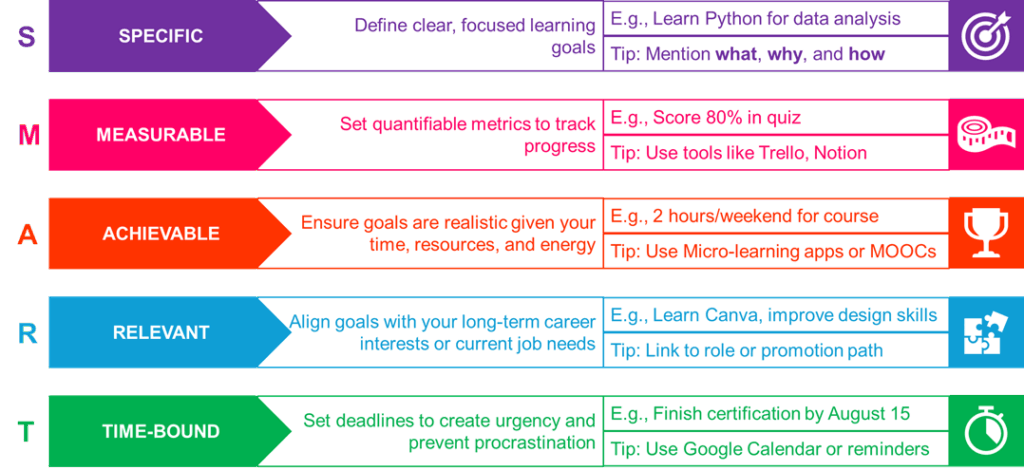Listen to this blog
Have you ever wondered if the skills you learned yesterday will still be useful tomorrow? I often find people, including me, pondering about this question. Industries are changing at lightning pace because of AI, automation, and digital transformation. Staying up to date is more than just a good thing, it’s a matter of survival in the current fast evolving world.
I recently had the pleasure of discussing this crucial topic in a webinar on upskilling for the future, and I’m excited to share my insights and experiences in this blog.
The Evolution of Work
While hiring, companies not only look for degrees but also skills you have managed to gain. Today, being able to learn new abilities quickly is more important than having many years of experience. We’re actually seeing a change in the way things are happening, for example:
- Relevance over Experience: A lot of mid-career professionals are questioning their relevance, while young graduates worry if the educational knowledge they acquire aligns with the current work demands.
- The AI Revolution: Another question I often hear is, “In the next 5 years, 50% of today’s jobs will change or disappear. What skills will keep YOU ahead?” While AI can help us do our homework, it can also work instead of us!
- The Powerful Partnership: I’m an optimist and firmly believe that AI will not replace us. As Ginni Rometty of IBM famously put it, “AI will not replace humans, but humans that do not use AI will be replaced.”
It’s about leveraging AI as a co-pilot as well as an assistant: a true Jugalbandi.
Find more on How Online Manipal and Coursera Are Shaping the Future of Career-Ready Education
Continuous Learning
The shelf life of skills is reducing dramatically. When I first started working, software like SPSS or SAS were important for about 4 – 5 years. Now, things change much more quickly. It seems like we’ve gone from GenAI to agentic AI in the blink of an eye.
Here’s why continuous learning is a necessity:
- Accelerated Pace of Change: New technologies come out so quickly that we have to keep adapting to keep up.
- The Rise of Meritocracy: With hybrid and remote work, your talents are what matter. More and more, companies value meritocracy, and new hires often outrank older employees who haven’t learned new skills and choose to stay redundant.
- Skills Over Degrees: Businesses are now looking for skillsets, not just degrees. Having hot skills give you an edge over others than just having a prestigious degree.
You may be interested in Boost Your Digital Skills with MUJ’s Immersive Tech Program
My Personal Upskilling Journey
Let me share a quick anecdote from my career. Right after my MBA, I landed my dream job as a marketing manager with Tata Motors about 22 years ago. But just two years later, I wanted to try something new and something different, so I joined a small startup in Bangalore called Marketics. This was in the very early days of startups, around 2004 – 2005.
Marketics focused on data-driven decision-making and data science models for leading CPG companies around the globe. While my marketing domain knowledge was valued, I had to rapidly upskill myself in SPSS and SAS and get good at statistics and model building to outshine. This decision, although hard at the time, provided me a head start in data and analytics and made me relevant. My career has grown since then, which shows that I have embraced upskilling and stepped out of my comfort zone.
In-Demand Skills Today
While skills evolve, some core areas remain the same. These are skills ‘today,’ but remember, the world is changing fast, and it may leave you behind!
| Category | Skills |
| Technical skills | Data Analysis & Visualization Cloud Computing Cybersecurity AI & Machine Learning |
| Human-centric skills | Emotional Intelligence Communication & Collaboration Critical Thinking Adaptability |
| Business-oriented skills | Digital Marketing Product Management Financial Literacy |
Industry specific skills

Know more: Career Prospects after an MBA in Healthcare Management
Creating Your Personalized Learning Roadmap
Crafting a roadmap is important for getting ahead of the competition.
- Self-Assessment: Identify your talents and weaknesses, as well as your career aspirations. Tools like Clifton Strengths Analysis can help you maximize your strengths and understand how you can best contribute to a team.
- Future Needs Analysis: Look beyond today’s requirements to where your business is heading, just as I pivoted towards data-driven marketing early in my career.
- Skill Gap Analysis: Compare your current skills with market demands. For instance, in data analysis, knowing modern, faster tools is more important than traditional coding.
- Prioritization: Make a list of your short-, medium-, and long-term goals.
The SMART Template
This template is invaluable for setting effective learning strategies and goals:

Leveraging AI Tools for Upskilling
When my dad made me go to the library, I used Google to do my research. Today, we need to use AI to learn. AI tools are like the internet in its early days; they have a lot of potential. Identify and choose the right AI tools for maximum efficiency.
- Code Editing & Generation: Tools like Cursor allow you to generate and refactor code, test it, and also document it simply by talking to it in English. Repli.it is yet another powerful AI assistant that can help you code, debug, and make web apps from prompts.
- Research & Writing: Notion AI is great for keeping track of your goals, planning your path, and journaling. Grammarly and QuillBot are great for grammar-check and providing assistance in writing.
- Q&A and Assignments: Perplexity AI or ChatGPT can help with assignments and research but always apply your critical thinking. The goal is to master the tool, not becoming its slave.
- Creative & Business: Canva with Magic Design, Adobe Firefly, Descript, Tableau GPT, and Power BI can significantly speed up creative tasks, visualizations, and dashboards. Earlier, I used to take weeks to create visualizations and dashboards for reporting. With the help of these tools today, I just take minutes.
Embrace AI; don’t fight it. Use it to upskill yourself!
Learning How to Learn
What do you think is the most popular MOOC (Massive Open Online Course) on Coursera today? Many might say AI or project management related courses. But it’s actually ‘Learning How to Learn,’ an excellent course by Barbara Oakley. It provides mental tools based on neuroscience to help you learn efficiently.
My father who is almost 80, once resisted Skype calling but now uses WhatsApp video calling and Meta AI for his messages effortlessly. He chose to be a lifelong learner to stay ahead!
Read more: Fueled by Passion, Powered by Coursera: The Journey of Our Champions
Tips to remain a lifelong learner:
- Be Consistent: Set aside some time every week to learn.
- Join Communities: Learning communities and forums will help you stay motivated.
- Apply What You Learn: Even if your job doesn’t need it, pursue side projects and volunteer to get more experience.
- Own a Learning Journal: Document your progress and reflections every day to stay motivated.
As the futurist Alvin Toffler wisely stated, “The illiterate of the 21st century will not be those who cannot read or write, but those who cannot learn, unlearn, and relearn.” Let’s embrace this philosophy and continue to grow.
Prepare for your next career milestone with us















